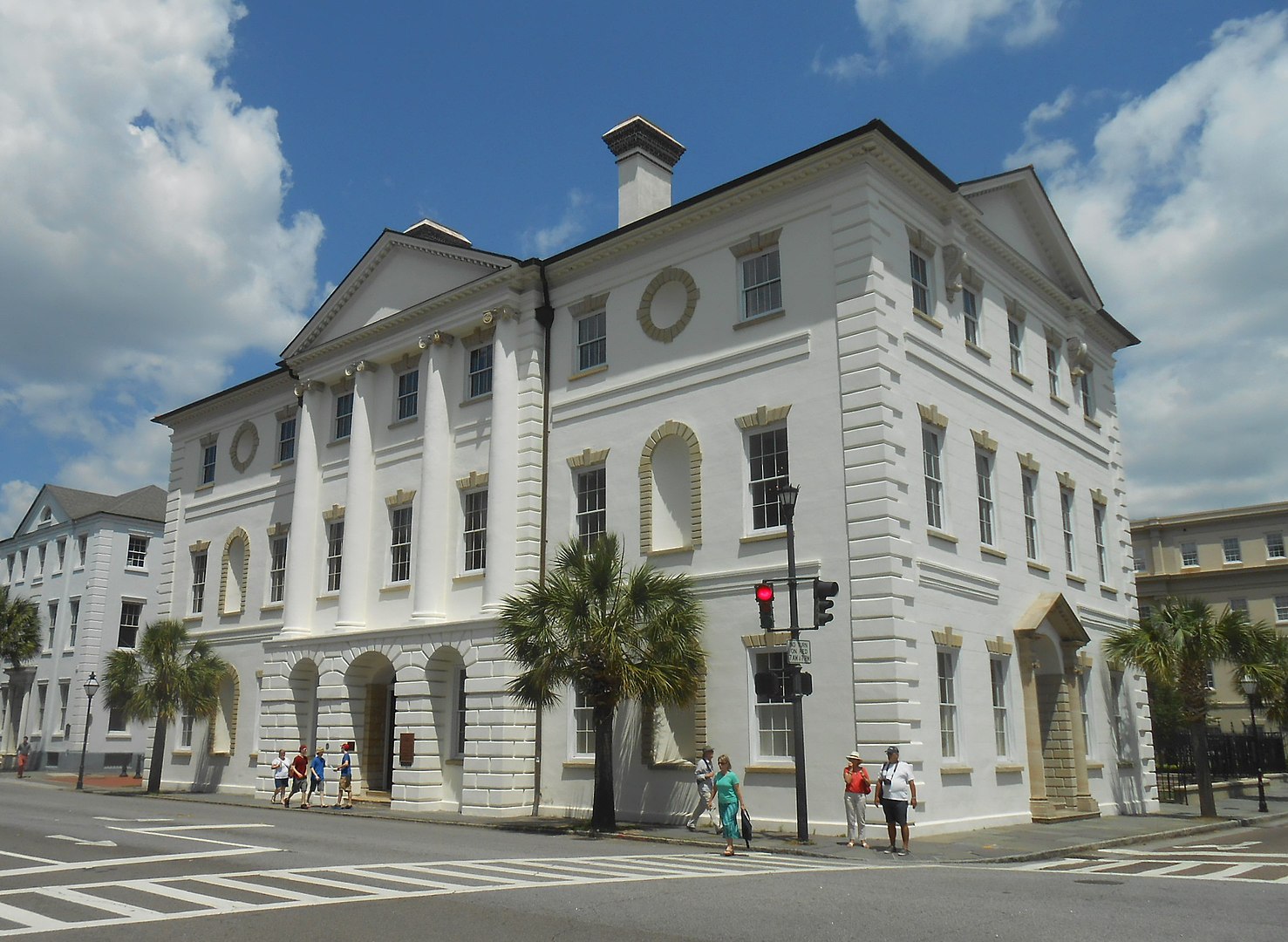How many former prosecutors does it take to give a white elected prosecutor in the Deep South a glowing reference on racial equality? A couple—so long as they convince Big Philanthropy funders that they are doing more than handing out undeserved positive PR.
That is what happened when Justice Innovation Lab, a New Venture Fund-backed nonprofit started by former federal prosecutor Jared Fishman, endeavored to study case outcomes from the Charleston, South Carolina, Solicitor’s Office according to race.
As explained on the organization’s website, Charleston is dear to Fishman. He prosecuted Michael Slager, the white police officer who in 2015 shot and killed Walter Scott, a Black man. He also seems to be on good terms with Charleston Solicitor Scarlett Wilson, the city’s top prosecutor. Fishman says the two “worked together to secure justice in the case,” when what transpired is that he locked the cop into a federal plea deal after Wilson failed to secure a conviction at the state level. (She even used her opening statement in court to victim-blame Scott.)
Teaming up with Prosecutorial Performance Indicators, another data-oriented think tank staffed by another former prosecutor (Melba Pearson, who ran as a reformist candidate for Miami-Dade County, Florida, State Attorney in 2020), the Justice Innovation Lab published a report this month: “Disparity and Prosecution in Charleston, SC.”
Its major conclusion is that Black and white men face essentially the same treatment from Solicitor Wilson and her prosecutors, though Black people are arrested at five times the rate of white people. When discussing the report, the local press has even used the bold phrase “equality in court.”
To come to this conclusion, researchers gathered data on various aspects of cases where prosecutors are in control, such as dismissals, plea negotiations and more.
The report does not address the very real ways trials are stacked against Black people in the city.
While this is all well and good, the report is bound to create unduly generous depictions of the reality of Charleston’s local prosecutor corps. Data is only as good as the metrics selected by researchers, and although this report is slated to be the first of a series, it does not address the very real ways trials are stacked against Black people in the city.
Setting aside the way Solicitor Wilson handled the Slager case, Black people basically cannot serve on juries in Charleston. Professors from Michigan State University College of Law found in 2016 that Wilson’s prosecutors strike Black people without cause at least six times more often than white people.
These sorts of facts can cause Black people to plead guilty even when they know they did not commit the crime. The report doesn’t weigh in on that phenomenon one way or the other, only acknowledging racial disparities in arrest rates and how that may translate to harsher sentences for Black men due to longer rap sheets. But the real risk of Black people pleading guilty regardless of guilt should not shock anyone. After all, how are they going to get a fair trial when accused in front of a jury that is all white or close to it, in a city economically reliant on a tourism industry that includes the romanticization of plantations and other remnants of slavery?
In his review of Carissa Byrne Hessick’s Punishment Without Trial, a new book about the problems with plea bargaining, Washington University law professor Daniel Harawa recalls a conversation in the book between Hessick and Damian Mills, a Black man wrongfully convicted of murder and later exonerated in North Carolina. Hessick asked Mills if he regretted pleading guilty despite his innocence. Mills said he only regretted not getting a better plea deal.
While this surprised Hessick, Harawa, who is Black, said he understood. The people who ran law enforcement in the county were white. Prosecutors in North Carolina, like in Charleston, South Carolina, have long practiced how to avoid placing Black people on juries. When considering his decision, Mills may have also been exposed to recent cases, like one where a Black teen was sentenced to death.
The stories of people who plead guilty to crimes they have not committed, fearing a far heavier sentence if they go to trial, are left untold. They don’t get reported on unless the people convicted are later exonerated, and work to exonerate the wrongfully convicted disproportionately focuses on the most serious criminal cases, like rape and murder. When the stakes of a conviction are lower, there may be less motivation from the convicted person to fight it, as well as less interest from the well-resourced nonprofits that could help.
That should cause us to question what it means when, for example, the Justice Innovation Lab reports that gun crime cases against Black defendants in Charleston are dismissed 26.3 percent of the time, while those against white defendants are dismissed only 23.5 percent of the time.
Perhaps the evidence in the proportionately smaller number of cases against white people is simply so airtight that dismissals are rare. And perhaps the evidence against Black people in the same cases is more often weaker, but prosecutors know most will plead guilty anyway, rather than go to trial, because they know the system is stacked against them.
In such scenarios, the right thing for Solicitor Wilson to do would be to dismiss more gun cases, and scrutinize police claims against Black people more closely. But the information provided by the Justice Innovation Lab does nothing to prompt such actions. It is actually unclear whether the philanthropy-funded work here has any purpose besides patting Solicitor Wilson on the back and keeping the world “exactly the way it is.”
Photograph of Charleston County Courthouse by ProfReader via Wikimedia Commons/Creative Commons 3.0





Show Comments